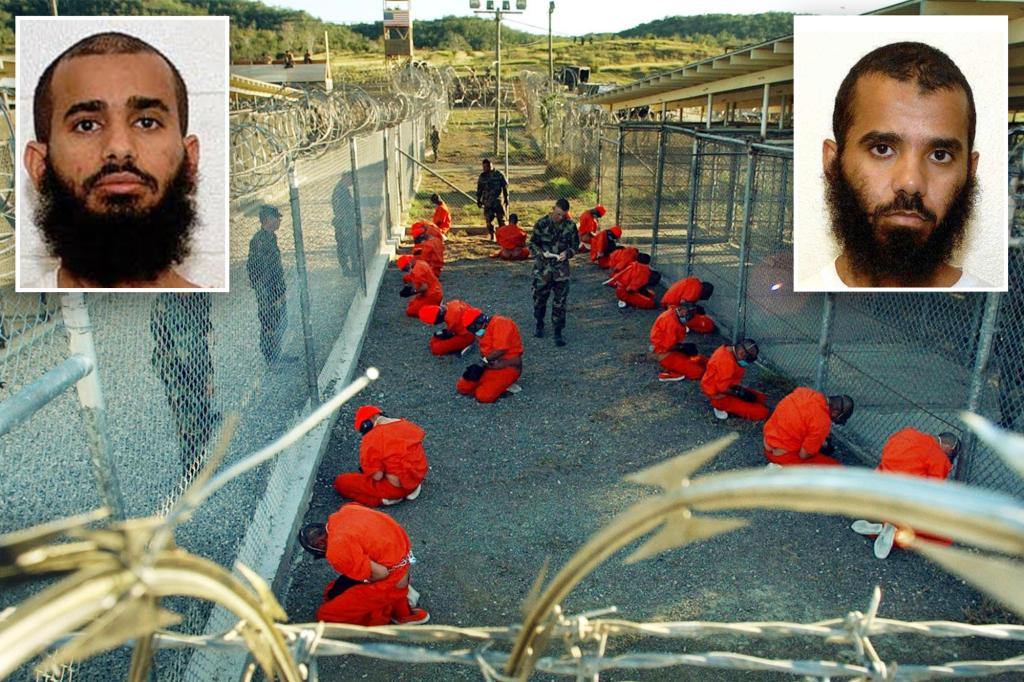The recent transfer of 11 Yemeni detainees from Guantanamo Bay to Oman marks another step in the Biden administration’s ongoing efforts to reduce the population and eventually close the controversial detention facility. This complex issue involves navigating legal, ethical, and security concerns while addressing the legacies of past counterterrorism policies. The transfer underscores the challenges inherent in balancing national security interests with the humane treatment of detainees, many of whom have been held for years without charges. The decision has sparked debate and raised questions about the potential risks associated with releasing individuals with alleged ties to terrorist organizations.
The released detainees, all Yemeni nationals, had been held at Guantanamo for years without being formally charged with crimes. The Department of Defense stated that each detainee underwent a comprehensive interagency review by career professionals who unanimously deemed them eligible for transfer, consistent with U.S. national security interests. This rigorous review process aimed to assess the potential risks posed by each individual and to ensure that their release would not jeopardize national security. The decision to transfer the detainees to Oman reflects the ongoing collaboration with international partners to find suitable resettlement options for Guantanamo detainees. Oman’s willingness to accept the detainees highlights the importance of international cooperation in addressing the complex challenges associated with Guantanamo.
Among the released detainees are individuals with alleged connections to al Qaeda, including alleged bodyguards for Osama bin Laden. Moath Hamza Ahmed al-Alwi, identified as a former al Qaeda fighter and bodyguard for bin Laden, is one of the released detainees. A 2016 U.S. intelligence file on al-Alwi expressed concerns about his extremist mindset while in detention. Another released detainee, Suhayl Abdul Anam al Sharabi, is also alleged to have been a bodyguard for bin Laden and is suspected of potential involvement in a planned hijacking plot. The release of these individuals raises questions about the potential risks they may pose and the effectiveness of the assessment process in determining their suitability for transfer.
The release of these 11 detainees follows previous transfers from Guantanamo, including the December 2023 resettlement of Ridah Bin Saleh al-Yazidi in Tunisia. These transfers represent a continuation of the administration’s commitment to reducing the detainee population at Guantanamo. Currently, 15 detainees remain at the facility, with varying statuses regarding their eligibility for transfer, review, or ongoing involvement in military commissions processes. The Biden administration faces the ongoing challenge of finding appropriate solutions for the remaining detainees, balancing security concerns with the desire to eventually close the facility.
The broader context of Guantanamo Bay involves the legal and ethical dilemmas surrounding indefinite detention without charges, military commissions, and the treatment of detainees. The facility has been the subject of intense scrutiny and criticism from human rights organizations and international bodies. The ongoing efforts to close Guantanamo reflect a recognition of the need to address these concerns and to find a more sustainable and legally sound approach to counterterrorism. The release of detainees, while part of this process, also sparks debates about the potential risks involved and the long-term implications for national security.
The Biden administration’s efforts to close Guantanamo are further complicated by legal proceedings related to high-profile detainees, including alleged 9/11 mastermind Khalid Sheikh Mohammed. Last year, the administration offered plea deals to Mohammed and several co-conspirators, sparing them the death penalty in exchange for cooperation. These plea deals have drawn criticism from various parties, including 9/11 families, Republican lawmakers, and even Defense Secretary Lloyd Austin. The ongoing legal proceedings and the controversy surrounding the plea deals highlight the complexities and sensitivities involved in seeking justice for the victims of 9/11 while also navigating the legal and ethical challenges posed by Guantanamo. The future of Guantanamo and its remaining detainees remains uncertain, with ongoing legal proceedings, political debates, and security considerations shaping the path forward.

